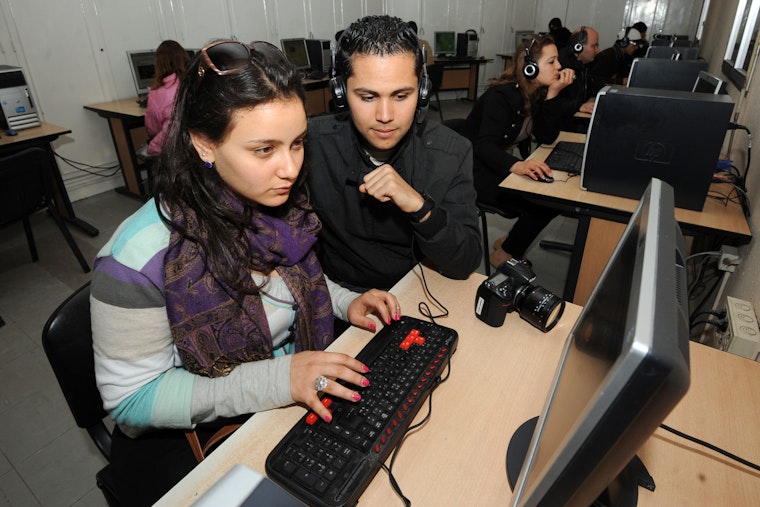Tunisia’s New Right to Information Law Needs People Power to Work
By Joel Campagna & Eszter Filippinyi

Tunisia’s recent adoption of a law granting people access to information is cause for celebration. By joining the international democratic movement towards more information accessibility and transparency, the country has set yet another bright example in an otherwise challenging region and shown its commitment to democratic transition and good governance.
But whether this law can bring the country closer to its democratic aspirations ultimately depends on citizens’ ability to make use of it, and on a public sector that is prepared to implement and comply with it.
This law guarantees the right to access information, particularly with regard to the administration of public services. The goal is to improve the performance of these services through transparency, promote public participation in the development of policy, and encourage academic research.
This potential turning point on Tunisia’s path to democracy would not have been possible were it not for the vigilant and vital work of civil society. Access to information has been a driver for mobilization, bringing together civil society groups with disparate missions to fight for a common cause. The new law could be an important tool to tackle some of the country’s most pressing socioeconomic problems, enhance government transparency, and increase civic participation.
The Tunisian branch of Article 19, an organization defending freedom of expression and information, worked with the government on drafting the bill and ensuring its adherence to international standards. The organization works with local government to proactively provide and respond to information. It also works with individuals and communities to help them participate effectively, claim quality services, monitor progress, and expose corruption.
Another organization, Al Bawsala, used social media to inform and mobilize the public around the adoption of the new law. In 2014, the group launched a project called Marsad Baladia to monitor the activities of municipalities. In just two years, the project has collected information from municipal governments and made it accessible via an app developed by young Tunisians. The app allows users to sift through information on their city’s budgets, personnel, activities, investments, and development plans.
When armed with accurate information about their local authorities, citizens can better understand their city’s work, resources, limitations, and plans for the future.
Municipalities across the country are now competing for higher transparency on the Marsad Baladia scale. The project could help expose corruption by allowing citizens to monitor the progress of development work and question its social utility, cost, and progress. Marsad Baladia has thus brought people closer to their local authorities by increasing the latter’s transparency and the former's participation. It is a first step towards active public participation at the local level.
But the full potential of Tunisia’s right to information law can only be realized if the government, civil society, and Tunisians themselves see it as part of a broader democratic ecosystem of politics, the rule of law, access to justice, and civic participation.
If the government is determined to increase its transparency and accountability, it needs to put in place a clear and workable mechanism to use the new law, including an independent complaint process as well as sanctions when information is unlawfully withheld. Disclosures of public information should not be limited to specific requests; rather, they should be part of a fluid process that is integrated naturally into a healthy political system. To do this, laws need to be harmonized, existing information classified, and qualified staff assigned.
Accessing information is only the first step, however—civil society can also educate the public on information’s social utility. Few in Tunisia see their right to information as a keystone that ties together many open society ideals that can advance and protect their rights.
If implemented effectively and openly, access to information could not only consolidate Tunisia’s nascent democracy, but also its role as the vanguard of democratic and social change in the region. But such a law isn’t worth the paper it’s printed on unless citizens and civil society can use it to address the issues that drove the Arab uprisings five years ago.
Article 19 and Al Bawsala are grantees of the Open Society Foundations.

Joel Campagna is the director of Special Projects for Open Society–Middle East and North Africa.
Until December 2021, Eszter Filippinyi was a program officer at the Open Society Human Rights Initiative.


